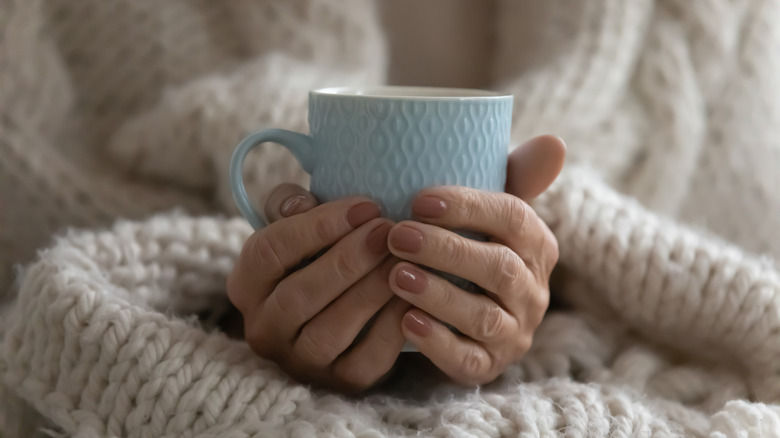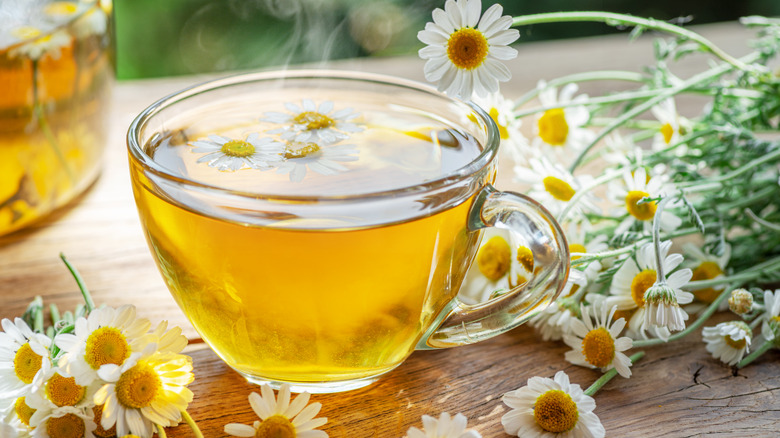The Drink Most People Prefer To Help Them Sleep - Exclusive Survey
Low lighting, soothing music, and calming scents are just a few of the many things that may help one fall asleep at night. Interestingly, however, there are also a number of food items that may do the trick too.
Healthline notes that foods packed with certain nutrients, amino acids, and antioxidants may help boost sleep by shortening sleep latency time and reducing sleep disturbances throughout the night. Such foods include turkey, almonds, kiwi, white rice, and more. But what about beverages? As it turns out, there are indeed various beverages that may also support our sleep health. To find out which drink most people reach for to help them fall asleep at night, we surveyed 612 Health Digest readers and offered five response choices of some of the most common bedtime beverages, including chamomile tea, warm milk, tart cherry juice, valerian tea, and turmeric lattes. Here's what readers had to say.
Warm milk versus chamomile tea
Raking in the least amount of votes was turmeric lattes with 24 answer selections. This response made up just shy of 4% of the total answers submitted. In second-to-last place, with 43 votes, was valerian tea, accounting for just over 7% of total answers. Although more research is needed, experts at Mount Sinai point to studies showing valerian may be effective against insomnia. Votes nearly doubled after that, with tart cherry juice coming in third place with 82 answer selections. This response made up 13.4% of the total answers. Containing the sleep hormone melatonin, the Sleep Foundation reports that this drink may increase our time spent snoozing.
Competing for first place were chamomile tea and warm milk. Making up just over 28% of the total votes, warm milk came in second place with 172 answer selections. With a staggering 291 votes, or 47.55%, chamomile tea ranked as people's most preferred drink to help them sleep. Business Insider reports that a chemical found in chamomile extract, known as apigenin, produces feelings of sleepiness when it binds with our brain's GABA receptors.


